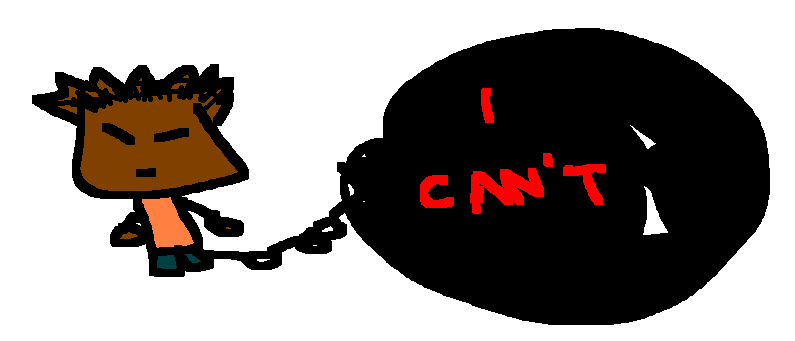A Blog Wanting to be a Book
This site was written as a blog. Which was nice in terms of allowing it to be written incrementally, but sucky for reading once it got really big. It definitely needed some logical linearization, rather than the chronological kind that comes by default. So here it is: a table of contents — a book-like ordering to this site.
Dedication: ‘Coz They Do That in Books
This “book” is dedicated to me. Me. Me! I wrote it, so why shouldn’t it be?! And no one else has dedicated a book, or even a “book”, to me (yet), so matters were taken into my own hands. ME!

Foreword: That’s What This Section Would Be If This Were a Book
This site is about how I learned Japanese to fluency in 18 months, how you can, too, and some details here and there. But it’s got advice that can be applied to learning any language, and perhaps (maybe? Getting ahead of myself here?) even to the rest of our lives. Language is as natural to humans as walking. Yet so many people seem to have trouble with language-learning…
First of all, let me make my position clear — I don’t buy any of that pap about your brain magically turning into unteachable mush — unmoldable rock — on or near your 12th birthday. Let’s call that what it is: hogwash. The real problem lies in ideas and attitudes — in philosophy, and in the behavior that philosophy produces. Someone who thinks they can’t do something, can’t. And someone who thinks they can, can. An able-bodied person might as well be disabled if he’s convinced that he can’t use his body. A disabled person essentially grows wings, to the extent that she doesn’t give up and refuses to make excuses…that’s a silly metaphor, but, anyway — change the philosophy, and you change the behavior; change the behavior, and you change the results. It’s not touchy-feely; it’s simple cause-effect.


The trouble that a lot of people are having with learning languages represents the most glaring, massive, elephant-in-the-Barbie-playhouse evidence of the systemic failure of so-called traditional methods of learning, i.e. regular school and any derivatives thereof. School sucks in general — even expensive, “good”, private schools with mostly white people ( 🙂 ) — but usually it can cover up that fact by giving people pieces of paper (with names like “degrees”, “diplomas” and “certifications”) that say they know something. But in language, as in medicine, there is no BSing; or there is BSing, but one can never get away with it. If you can’t read real Japanese (yet), then you can’t read real Japanese (yet), and all the verbose textbooks, boring busywork and university credit hours in the world can neither hide nor offset that fact. I have seen too many Japanese majors who don’t have a solid command of the language, just as I have seen too many Japanese “English” teachers who can’t even hold a proper conversation in English, let alone pronounce it.
One of the most common responses to this is to come up with some BS theory about how “different” and “Asian” and “inscrutable” the Japanese people and language are. Let’s also call that what it is: hogwash upon hogwash. I’m not a linguist in that I don’t have qualifications in language teaching or anything. I’m just one person who took ideas from other people, applied them systematically and found success with it. So, this is just me sharing the processes of thought and action that led to that success, in the hope that you can do the same.
Anyway, as I see it, language is not an act, nor is it a skill; it cannot be possessed. Language is a habit. You don’t “learn” a language as such, you live it. You don’t need to get “good” at language, you get used to it. You don’t become fluent at a language, you become it. And that pretty much covers it. The rest is detail. With that in mind, let’s continue to the detail…

Nice blog!
I just started my journey on learning Japanese. I have to say that the written language provides so much pleasure to my geometrical mind and a bit of effort to my right hand. Every morning my friend and I have to commute for almost an hour and we have ran out of things to say to each other, plus we both are learning Japanese. Is there any audio course that we could play in our CD player so we can practice basic pronunciation while driving?
ありがと
I would recommend JapanesePod, it’s nice for beginners.
Download a ton of Japanese podcasts. Look up 爆笑問題 (ばくしょうもんだい) for example.
Good luck!
I like your approach and it is true. You really do need to sort of carve a new space in your head where you ARE Japanese and where you express your Japaneseness 😀 If you speak multiple languages and you switch back and forth for whatever reason, you may not realize it but your whole body, your mannerisms, your posture all change in subtle and not soo subtle ways. Like when you speak to older folks or kidds. You’re not just suddenly speaking another language, or even suddenly expressing yourself in Japanese terms because there are topics you wouldn’t bring up or broach in one language because it would just feel weird or leave a sour taste in your mouth. There are jokes that have no value in other languages but in their natural context make something greater that is unspoken in that culture become tangible or take form. So its not about being familiar with a new language but rather being familiar with yourself as a representative of that society/culture. Thank you
Rubel